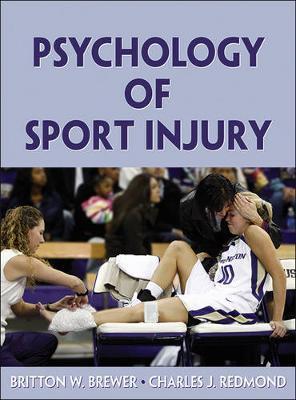Psychology of Sport Injury

Psychology of Sport Injury
Written by a sport psychology consultant and an athletic trainer, Psychology of Sport Injury provides a thorough explanation of the elements and effects of sport injuries along with up-to-date research and insights for practical application. The authors offer a contemporary approach to preventing, treating, rehabilitating, and communicating professionally about sport injuries that takes into account physical, psychological, and social factors.
Psychology of Sport Injury presents sport injury within a broader context of public health and offers insights into the many areas in which psychology may affect athletes, such as risk culture, the many facets of pain, athlete adherence to rehab regimens, the relationship between psychological factors and clinical outcomes, collaboration, and referrals for additional support. The book explores the relevant biological, psychological, and social factors that affect given circumstances. The text consists of four parts: Understanding and Preventing Sport Injuries, Consequences of Sport Injury, Rehabilitation of Sport Injury, and Communication in Sport Injury Management.
Psychology of Sport Injury includes evidence-based examples and demonstrates real-world applications that sport health care professionals often face with athletes. Additional pedagogical features include the following:
- Focus on Research boxes provide the what and why of the latest research to complement the applied approach of the text.
- Focus on Application boxes highlight practical examples to illustrate the material and maintain student engagement.
- Psychosocial content aligned with the latest educational competencies of the National Athletic Trainers' Association (NATA) helps students prepare for athletic training examination
PRP: 571.20 Lei
Acesta este Pretul Recomandat de Producator. Pretul de vanzare al produsului este afisat mai jos.
514.08Lei
514.08Lei
571.20 LeiIndisponibil
Descrierea produsului
Written by a sport psychology consultant and an athletic trainer, Psychology of Sport Injury provides a thorough explanation of the elements and effects of sport injuries along with up-to-date research and insights for practical application. The authors offer a contemporary approach to preventing, treating, rehabilitating, and communicating professionally about sport injuries that takes into account physical, psychological, and social factors.
Psychology of Sport Injury presents sport injury within a broader context of public health and offers insights into the many areas in which psychology may affect athletes, such as risk culture, the many facets of pain, athlete adherence to rehab regimens, the relationship between psychological factors and clinical outcomes, collaboration, and referrals for additional support. The book explores the relevant biological, psychological, and social factors that affect given circumstances. The text consists of four parts: Understanding and Preventing Sport Injuries, Consequences of Sport Injury, Rehabilitation of Sport Injury, and Communication in Sport Injury Management.
Psychology of Sport Injury includes evidence-based examples and demonstrates real-world applications that sport health care professionals often face with athletes. Additional pedagogical features include the following:
- Focus on Research boxes provide the what and why of the latest research to complement the applied approach of the text.
- Focus on Application boxes highlight practical examples to illustrate the material and maintain student engagement.
- Psychosocial content aligned with the latest educational competencies of the National Athletic Trainers' Association (NATA) helps students prepare for athletic training examination
Detaliile produsului











